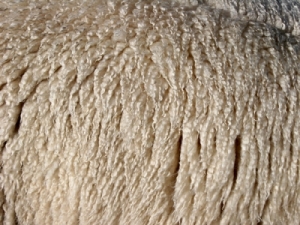Top wool advocate bales out
The conversion of productive farmland into trees has pretty much annihilated the wool industry.
 The strong dollar, restricted off-shore interest and high volumes of one wool category on offer this week saw local prices ease.
The strong dollar, restricted off-shore interest and high volumes of one wool category on offer this week saw local prices ease.
The strong dollar, restricted off-shore interest and high volumes of one wool category on offer this week saw local prices ease.
New Zealand Wool Services marketing executive, Malcolm Ching says of the 12,180 bales on offer from the predominantly short second shear wools in the North Island, 77% sold.
The weighted currency indicator compared to the previous weeks' auction lifted 0.65%.
Ching advises that compared to the similar offering of North Island wools on June 9:
Fine crossbred shears were 2 to 4% cheaper.
Coarse crossbred full fleece were firm to 3.5% easier.
Coarse shears were down 3 to 6% with the shorter types affected the most.
Short first lambs were 2 to 4% softer.
Coarse short oddments were 2.5 to 5.5% cheaper.
There was limited interest with Australasia, Western Europe, United Kingdom principals, supported by India, Middle East and China.
The news sale on June 30 comprises about 11,300 bales from the South Island.
Tickets are now available for Beef + Lamb New Zealand’s (B+LNZ) Out the Gate, returning from 19-21 May 2026 at Te Pae, Christchurch.
Dairy Women's Network (DWN) is welcoming AgriHealth as a new partner.
Northland Field Days patron Ross Newlove remembers the inaugural field days he attended 40 years ago.
Southland farmer Murray Donald has been appointed as chair of Safer Farms, the industry-led organisation focused on reducing harm, injuries and fatalities in the agricultural sector.
National Lamb Day returns this Sunday, 15 February, with Beef + Lamb New Zealand Inc calling on Kiwis to fire up their barbecues and celebrate the people and the product that put New Zealand on the world map.
When it comes to arranging the sound system at Northland Field Days, no one does it better than Colin Finlayson.